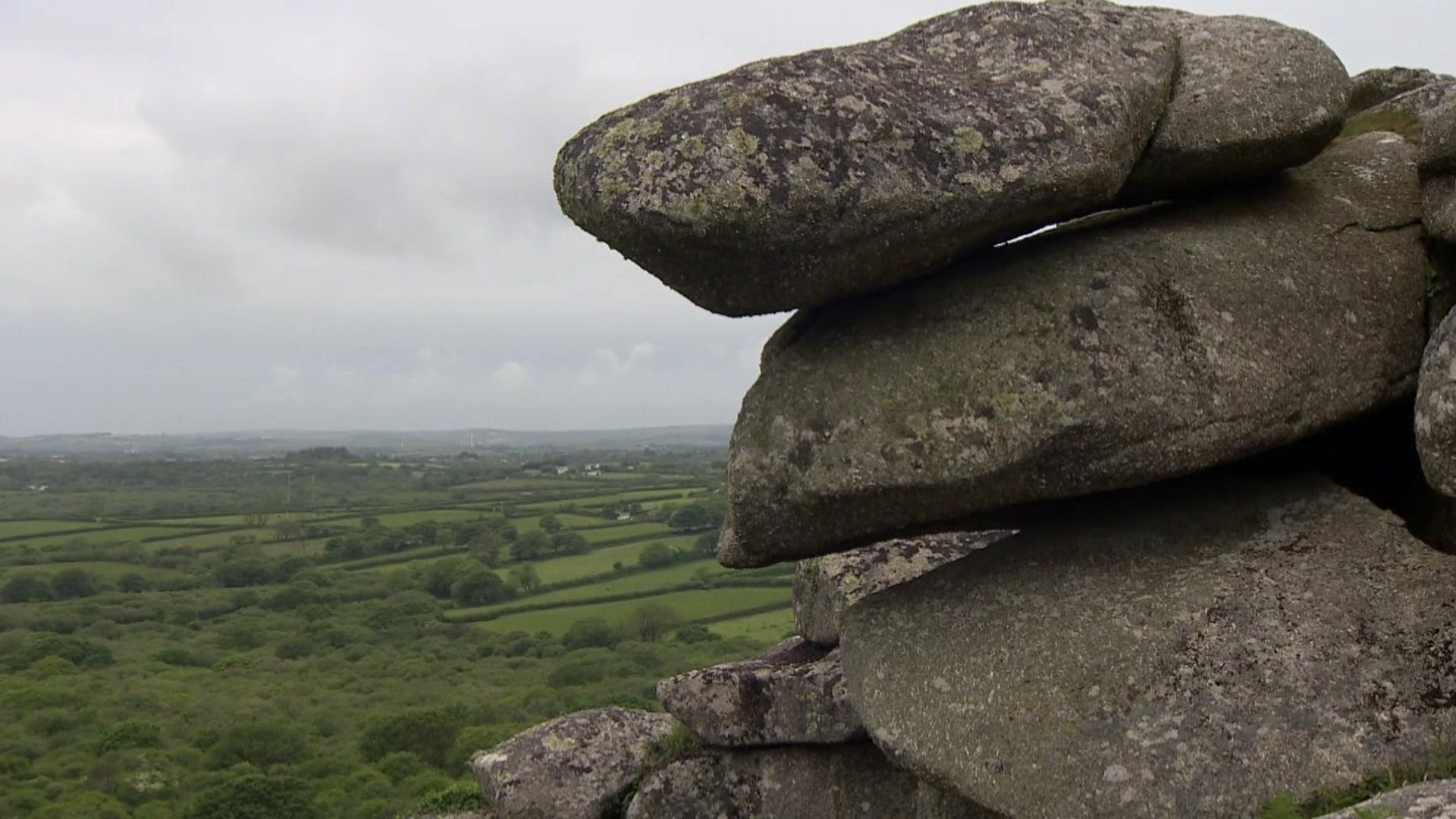Scything used to improve wildlife habitat in Cornwall
- Published
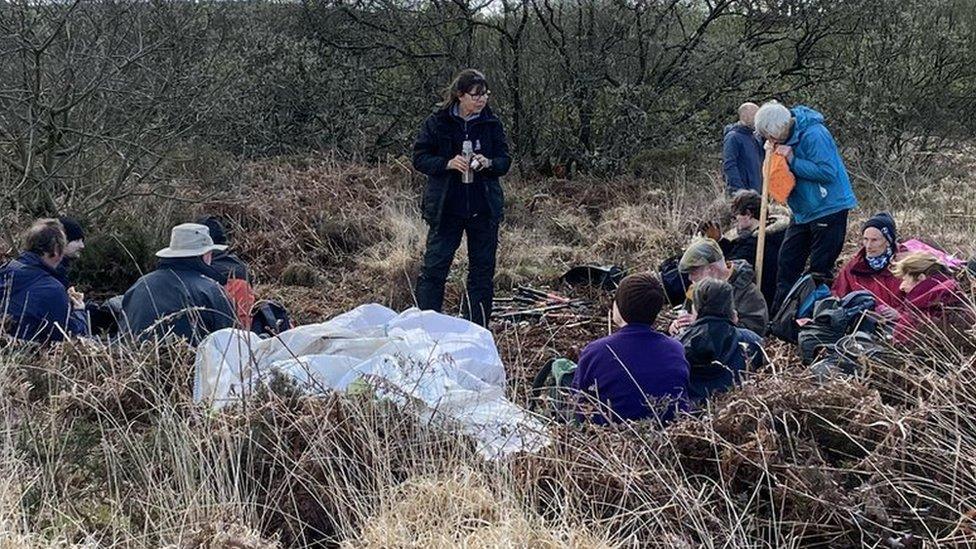
Volunteers were described as "hardcore" by the project staff
Volunteers are using the traditional farming method of scything to help improve a wildlife habitat next to a Cornish river.
Teams led by Cornwall Wildlife Trust have been mastering the skill to clear scrub from moorland around the River Cober at Burras.
The method involves swiping the tool by hand to cut vegetation.
The work is part of the Upstream Thinking, external project funded by South West Water.
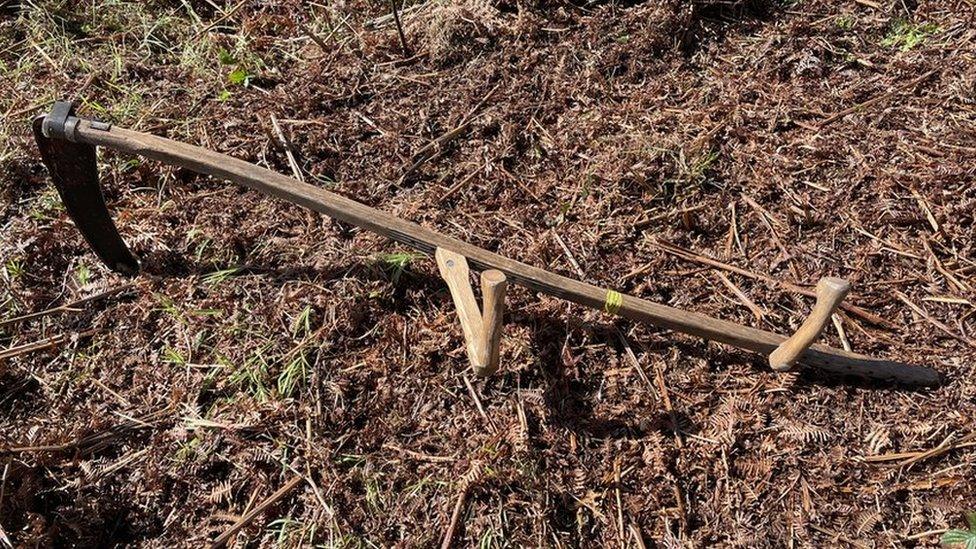
The scythe is a traditional farming tool
The initiative aims to protect water quality, as well as enhance wildlife habitats across drinking water catchments, and involves farmers and landowners.
Sue Hocking, project ecologist, said: "These areas are being lost under bracken, bramble, gorse, willow, and turning into scrub and woodland, which is a great shame because they're a unique niche for all sorts of wildlife that you wouldn't get in scrub or woodland."
She said the volunteers were "hardcore" as they were "working in rough terrain and poor weather and they do a brilliant job".
The volunteers are using scythes to remove the vegetation and improve the habitat for amphibians, butterflies and birds.
Claire, a project volunteer, said: "It's something positive to do.
"It's only a small contribution but I love doing things with the team and you come to these wonderful beautiful places."

Follow BBC News South West on Twitter, external, Facebook, external and Instagram, external. Send your story ideas to spotlight@bbc.co.uk.
- Published17 April 2023
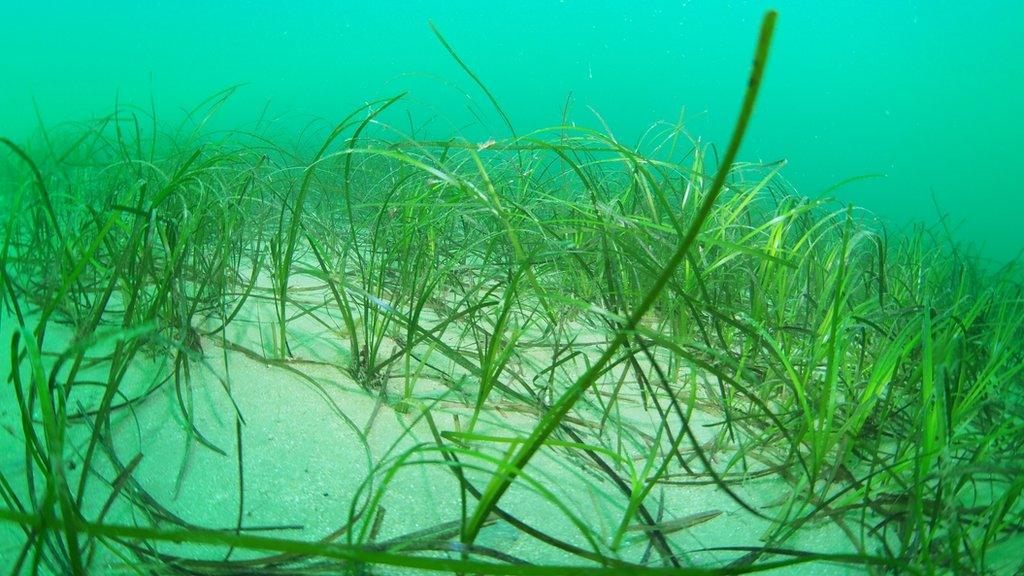
- Published9 November 2022
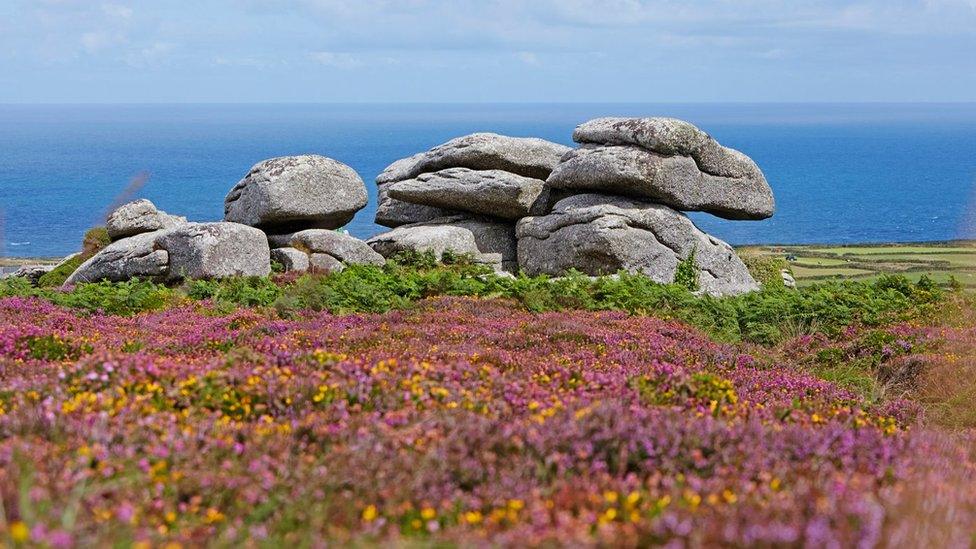
- Published10 August 2022
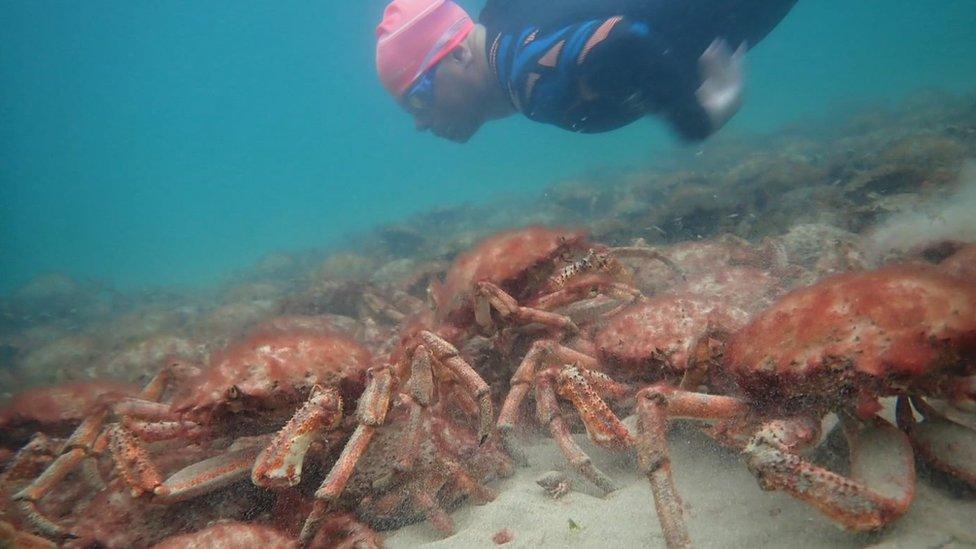
- Published21 July 2022
